Presently, it’s almost impossible to be certain about the time or the identity of the first ever Greek to have stepped foot in the city of St. Louis[1]. However a 19th century source does share a narrative of a previously unknown early visit to St. Louis by a quite distinguished guest! There is a paradox to this story, for the first known Greek to have visited St. Louis was in fact not originally Greek, but came to be recognized as the “first” among all (of his) Greek subjects! The man I’m referring to is no other than the first King of the newly founded Greek Kingdom of the early nineteenth century, King Otto of Greece. Otto was born in Salzburg in 1815 and was the second son of King Ludwig I of Bavaria.
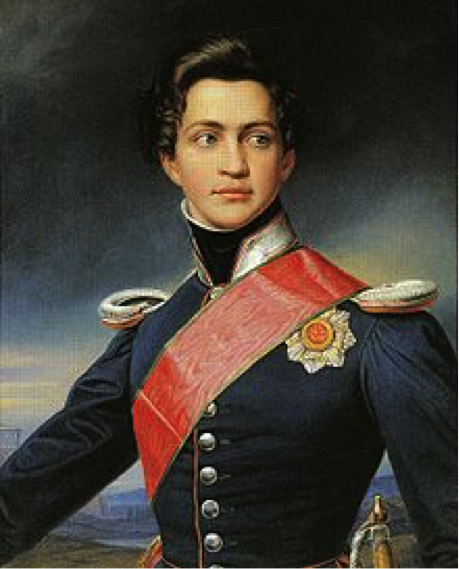
King Otto of Greece (1815 – 1867)
It was in 1832, during the Convention of London, that the Great Powers decided to appoint the young Bavarian prince as the head of the nascent Greek state, even though Otto was only 17. During the first three years of his monarchy a troika of Bavarian technocrats, headed by the financial expert Count Josef Ludwig von Armansperg, had been appointed to run the state until King Otto could reach maturity. In 1835, only three years later, the young King was expected to assume full responsibility of the Kingdom’s affairs and fate. It seems however that Armansperg’s appointment as the unofficial Greek Chancellor was silently extended for a year until 1836; this could possibly be explained by Otto’s prolonged visit to the States that coincided with the 1835-6 dates. Before our story continues, it is important to discuss the man who first penned the account of King Otto’s sojourn in the city of St. Louis.
John Fletcher Darby was a lawyer and a respected financial adviser. He lived a politically active life as the fourth mayor of the city of St. Louis and eventually became a member of the Missouri Senate as well as an elected US congressman. In 1880, two years before his death, Darby published an extensive autobiographical volume, that held a wealth of valuable information about the 19th century history of St. Louis, titled Personal Recollections.[2] In his book, Darby dedicated a few pages to narrate the royal visit of young Otto to St. Louis.
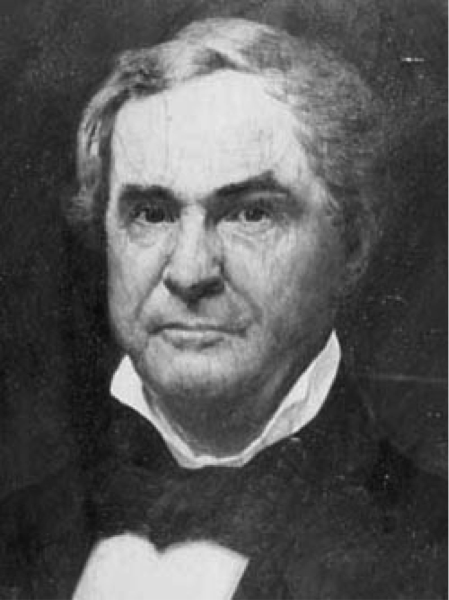
John Fletcher Darby (1803 – 1882)
Through Darby’s memoirs we learn that King Otto was visiting the States as a distinguished guest of the German born John Jacob Astor. Astor was the wealthiest American at the time, who had managed to become the first multi-millionaire thanks to the fur trade and the real estate business.
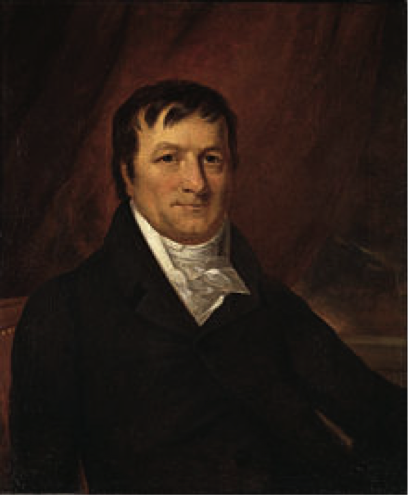
John Jacob Astor (1763 – 1848)
Sometime in 1835, Astor briefly entertained Otto in New York before eventually sending the young King to St. Louis, to meet his good friend and business partner in the American Fur Company, Pierre Chouteau. There, Otto would experience some first rate hospitality by one of the most prominent members of the St. Louis society. Darby, who was the current mayor, frequented Chouteau’s estate and met Otto on several occasions, thus being able to provide details about the King’s time and works in the city. Darby’s introductory lines initially sketch a rather unflattering image of young Otto:
He was a man of large size, over six feet high, of light complexion, and wore a heavy mustache. I dined with him at Mr. Chouteau’s, and met him there at parties on several occasions. He could not speak English, and used the French language in conversation. He did not seem to be very refined, and from the manner in which he loaded his big mustache with his soup, and soiled his napkin at table, he was not calculated to impress very favorably an American, unaccustomed and unused to royalty.[3]
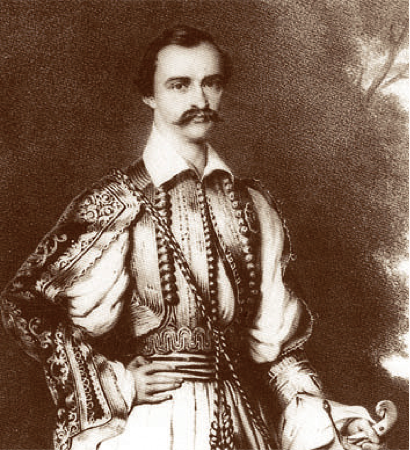
King Otto of Greece
Darby continues his narrative with an equally candid description of the frivolous character of young Otto and his rather aimless adventures in the “Fourth City”!
The king spent some time here, without any seeming object. There was a want of intellectual enjoyment in his pursuits, and he appeared to spend life in the pursuit of pleasure and personal amusements. He passed nearly all of the time, while in St. Louis, in Mr. Chouteau’s counting-room, where he went daily, and where Mr. Chouteau, from his great politeness, was compelled to entertain him in conversation.[4]
Several weeks later, Otto travelled to Ste. Genevieve, one of the oldest towns in Missouri and the hub of a number of wealthy French-speaking land owners. There, he spent time in the company of the Valles, General Bosier and John Ribeau. Finally, after several months in the Midwest, Otto seemed to have regained his joy for life and his love for his “adopted” Greek Kingdom and decided it was time to sail back to Greece.[5] His arrival back to his Kingdom was deferred briefly, however, since before reaching Greece, he stopped by lower Saxony and the City of Oldenburg in late 1836, to meet the young duchess Amalia, who was patiently awaiting at the altar for the young King. The marriage took place on December 22, 1836, and the newlyweds departed soon after for Athens in order to establish their royal house.
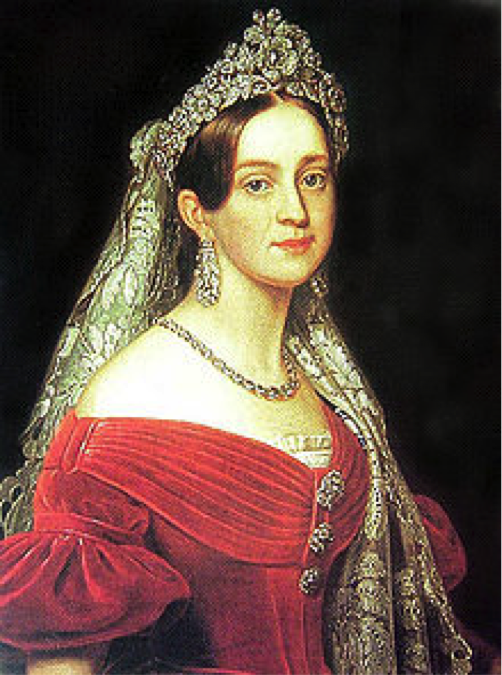
Queen Amalia of Greece (1818 – 1875)
Otto’s trip to the States between 1835-1836, including his blissful sojourn to St. Louis, should be seen as part of an extended royal bachelor party for the young King. This trip not only delayed his wedlock with Amalia of Oldenburg, but also delayed his return to all the responsibilities awaiting in Greece in taking over the reins of his Kingdom! But, who sprang for the party? Darby offers that information too, through a confession given to him by Pierre Chouteau, Jr.; Pierre told Darby that John Jacob Astor was still lamenting the small fortune that he had wasted for Otto’s trip to the States, costing him an astonishing sum of $15,000!
And thus begin our stories into the lives of St. Louis’ first Greeks …
[1] St. Louis functioned as a connecting point between French Canada and Louisiana during the (late) eighteenth century when a number of French European families travelled South from Canada. Several Greeks were married into those families who eventually came to become the elite creole houses of New Orleans. It’s quite possible that during their southward journey, those Greeks passed through the city of St. Louis and/or kept commercial ties with the city. At least one (greek) member of those families makes an appearance in the official records of the city of St. Louis in the middle of the nineteenth century.
[2] Darby, John Fletcher. Personal Recollections. St. Louis: G. I. Jones and Company, 1880.
[3] Darby, Recollections, 210.
[4] Ibid., 211.
[5] Throughout the first few years of King Otto’s rule, both the American and European press frequently reported the melancholy state of the young King and his strong desire to return back to his homeland and away from the decrepit and unfriendly land of the Greeks!


Fascinaring story. Bravo for finding this fascinating bit of St. Louis Greek history.
LikeLike